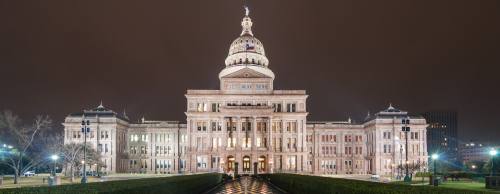The 86th Legislature will begin in 2019 with a familiar set of particularly gnarly issues: public school finance, property taxes and a tight state budget, to name a few.
The 150 state representatives and 31 senators working on those problems will be working in a new political atmosphere, with Democratic gains in both the House and Senate—both still remain in Republican control—and a new speaker in charge in the House.
Texas Gov. Greg Abbott and Lt. Gov. Dan Patrick, both fresh off re-election, return to leadership roles. State Rep. Dennis Bonnen, R-Angleton, completes the leadership set. He announced commitments from 109 House members to succeed outgoing House Speaker Joe Straus, R-San Antonio. The vote will not take place until the first day of the legislative session on Jan. 8, but Bonnen’s announcement cleared the field of other candidates.
Two items stand out from a list of things adding pressure for new state spending: school finance and Hurricane Harvey.
State leaders have tried for several legislative sessions to rebalance the school finance system, which relies heavily on local property taxes—to an extent that has made property tax relief an important issue. To lower pressure on those local taxes, legislators would have to cut overall spending on public schools, increase state spending to offset local cuts, or both.
The recovery from Hurricane Harvey is also expensive, but unlike school finance, it is a one-time expense. If lawmakers choose to do so, some or all of the money needed for recovery efforts can likely be found in the state’s Economic Stabilization Fund, or Rainy Day Fund.
Lawmakers will consider a wide range of other ideas, such as new gun laws, getting rid of daylight saving time, slowing the rise of state college tuition, marijuana legalization and prison reform. If previous sessions are any indication, more than 6,000 proposed bills could come before lawmakers to be considered before the end of the 140-day session. Only a fraction will pass; in 2017, 1,211 out of 6,631 bills passed, according to the Legislative Reference Library.





